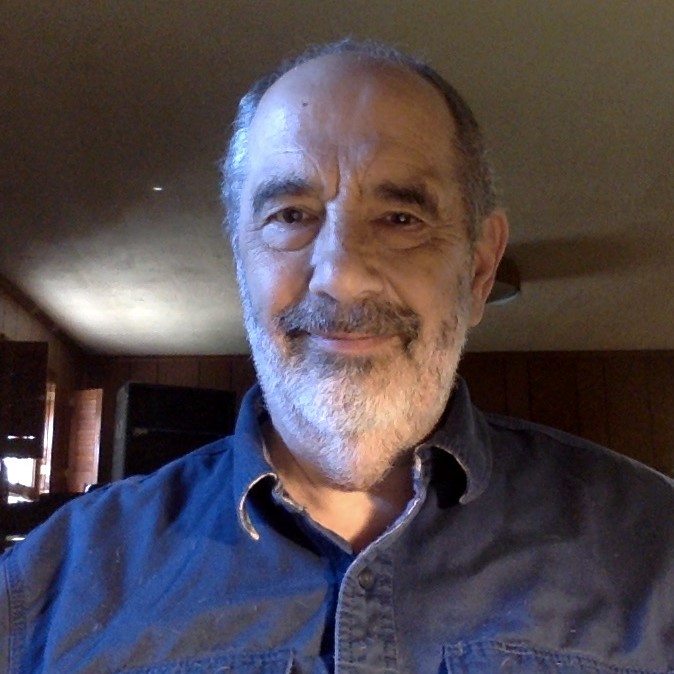ABOUT US | OUR LEADERS

David Arbogast
I'm a retired educator living with my wife, Betsy, and our two cats in Northern Virginia. Our children, Camille and Luke, have "grown and flown the nest," but we've recently been presented with a wonderful grandson, Wesley. When I'm not helping with a meal in the kitchen or reading a book in the den, I might be found working in the garden or hiking in the nearby Blue Ridge Mountains. Or even playing bass guitar with my band! (More on that below.)
I enjoyed my first few Intensive Journal workshops at George Mason University (GMU), and it was through the sponsorship of the Northern Virginia Writing Project at GMU that I began preparing to be an Intensive Journal leader. As a teacher, I adapted some of the workshop exercises to help my students learn and discover their passions and interests, and as an administrator, I brought Intensive Journal workshops to in-service programs with other teachers so they might experience the same. Now, with persons from all walks of life, I find similar satisfaction as I lead workshops and watch the participants quietly grappling with life's issues, uncovering unsuspected inner sources of wisdom and strength.
I have come to trust and rely upon the Intensive Journal method's ability to help me integrate my daily activities and routines with those vague sorts of yearnings, dreams, and imaginings that we all know. It has become a compass, pointing me the way, sometimes with leaps into the unknown, more often with tentative steps that have gradually revealed new vistas.
I mentioned that I play bass, something I enjoyed as a teenager. I put that aside as my life took on new adventures and responsibilities in college, in marriage, and in my career. Of course, I've always listened to music, but for many years I never performed it. And then, one time at a workshop, while I was working in the Intensive Journal section called Intersections: Roads Taken and Not Taken, I was reminded of these words of Dr. Progoff: "We have all made blind choices at the intersections of our life, [and] and the choices we made at those intersections left many potentialities untouched and unexplored." I recognized, then, that playing music was one such potentiality that I had left behind at one of those intersections, somewhere long ago in my life.
But Progoff goes on to say that such capacities and talents, once "bypassed because of the pressures of our existence … retain the strength of life and await the appropriate moment for being given form and expression." (At a Journal Workshop, rev. ed., pp. 104-05) And so, my children now grown into young adults, I again picked up my four-stringed friend and got together with a few other used-to-be musicians. We're not a great band, and we'll probably never issue a CD, but every Wednesday evening we gather in my basement to rock away like we did in the old days!
I would be remiss if I failed to mention how valuable the Intensive Journal method has been to my work in a 12-Step program. Of course, today, there are many such programs designed around the same twelve principles, helping persons in their struggles with alcoholism, addiction, overeating, sex, compulsive gambling and the like. I have discovered that my Intensive Journal work resonates strongly with each of the twelve steps in ways that profoundly promote my own growth and recovery
On a final note, most of the in-person workshops I lead are located east of the Appalachian Mountains, but each of our online Zoom workshops are open to all, no matter where you live, and I hope I'll see some of you in an upcoming workshop.
The Intensive Journal Method and the Inward Outward Journey By Dave Arbogast
Journal consultant David Arbogast discusses an important aspect of the Intensive Journal method, the "inward outward journey."